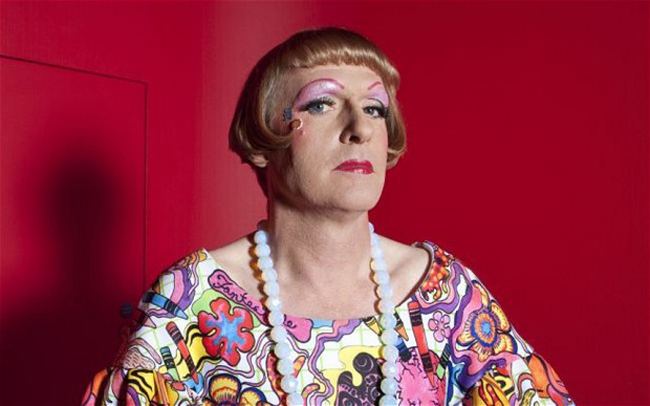I want to talk about the issue of quality because I think this is one of the most burning issues around art – how do we tell if something is good? And who tells us that it’s good? That’s perhaps even more important. And of course now, in the art world as it is, does it really matter? And I want to talk about what are the criteria by which we judge art made today.
There’s no easy answer for this one because many of the methods of judging are very problematic and many of the criteria used to assess art are conflicting. We have financial value, popularity, art historical significance, or aesthetic sophistication. All these things could be at odds with each other
Now my job, day in day out, is to make aesthetic judgments around such things. And the discomfort around it is that it’s a subjective problem, so it’s very tricky. I’m skeptical of the idea that you can find an empirical way of judging quality, particularly in art. We’ve had attempts at it over history. The Greeks had their golden ratio. The painter William Hogarth, he had his Serpentine “line of beauty” that he used to put into his paintings thinking this was a sort of way of ensuring that it would be a beautiful thing. But my favourite one was the “Venetian secret”, when Benjamin West, president of the Royal Academy of Art in about 1796, was hoaxed. Someone said they had found a Venetian secret, which was that Titian and a lot of the Venetian painters had this formula for painting the ideal beautiful painting. And someone brought this old letter to West and he started painting paintings in this formula and he was mocked hideously for this. But I can feel some sympathy for him in a way…
Above image: Turner Prize winning artist Grayson Perry delivered “Playing to the Gallery” for the 2013 BBC Reith lecture series.


Drawings by Grayson Perry that illustrated his 2013 BBC Reith lecture series, “Playing to the Gallery.”

Grayson Perry, Mad Kid’s Bedroom Wall Pot, 1996. Grayson Perry was never motivated by a desire to work in clay as such, but chose pottery because studio ceramics was in thrall to a formal idea. Perry challenges the idea, implicit in the craft tradition, that pottery is merely decorative or utilitarian and cannot express ideas. All images courtesy of Grayson Perry.
Read an edited extract of Perry’s initial lecture in the Financial Times
Listen the first of four episodes of “Grayson Perry: Playing to the Gallery: 2013”
View a selection of video from Grayson Perry’s Reith Lectures

Grayson Perry’s perspective extends far beyond 1950 which elevates him far above most critics and artists today…
I’lll admit that I wanted to dislike this lecture based on its title “Democracy has Bad Taste” and Grayson Perry’s (in my view) ridiculous outfit. “Playing to the Gallery” indeed, I thought. Isn’t this artist exploiting his persona to create a buzz about his already pretty interesting work. However as I watched the highlights and listened to the full length talk, it became clear that his persona is simply one aspect of his engaging personality, and I had to remind myself that all artists “play to their audience” with whatever charm they might possess. We expect musical acts to put on an outlandish or racy persona or alter ego. WHatever-her-name-is becomes Lady Gaga or Robert Zimmerman becomes Bob Dylan, because an alter ego liberates the personality trapped within an artist, allowing that artist license to be more self consciously or conspicuously arty.
But the talk itself doesn’t really take a hard position. Perry refers to a very popular exhibition at the Tate as being panned by a Gallerist/critic whose taste is far more sophisticated than that of the very popular artist, and gives us a very funny anecdote about an extensive survey concluding that what people across the board really want is a pleasant landscape painting. Both of these get at the divide between the general public’s taste and interests and the tastes and interests of the more elite players in the fine arts world. But this point isn’t really at the heart of his talk.
He spends far more time discussing and at times ridiculing the “validators” of art (without truly offending them). I particularly liked his bit about the obtuse “International Arts English” used by curators and academics and the story of the magazine editor whose english-as a-second-language led the magazine to represent the “wrong kind of unreadability”. Through it all, he maintains that Art may seem elitist to outside observers but perhaps there is a democracy at work within the art world as well. Each bit player can bestow a few brownie points which add up to establishment validation. Whether that validation survives a few decades or several centuries is another matter. It seemed clear that some popularity is critically important to an artist, but that the wrong kind of popularity is the kiss of death.
I was left wondering if Perry was leaving it up to the audience to infer that it is the art world itself whose democracy has bad taste or whether that is simply my own opinion much of the time.